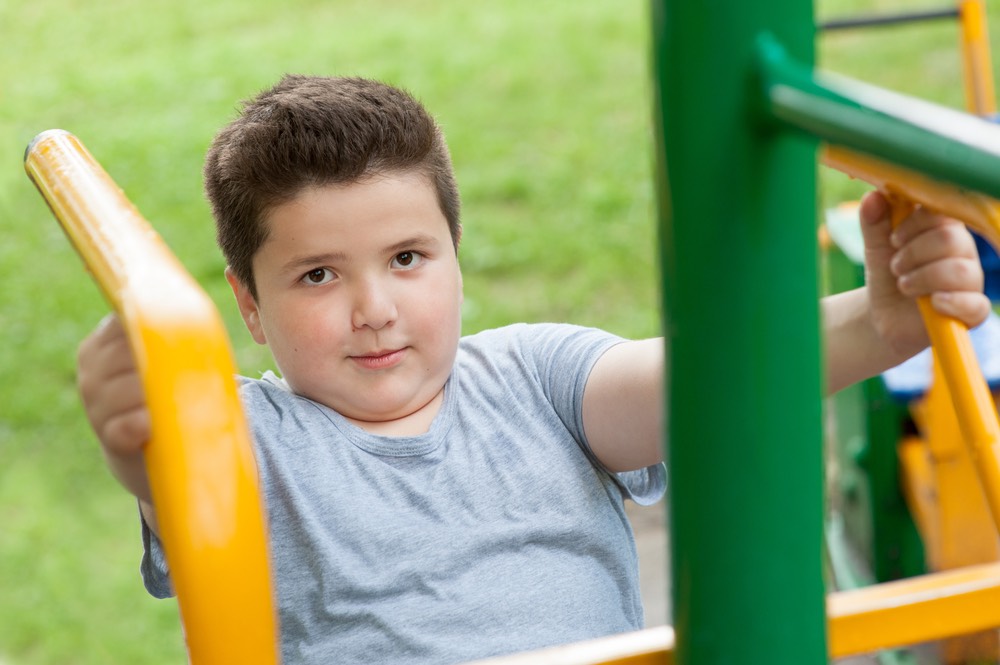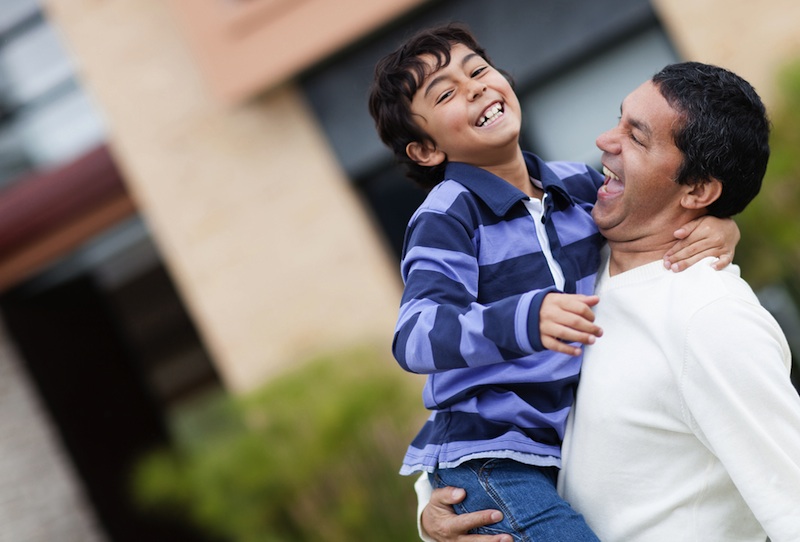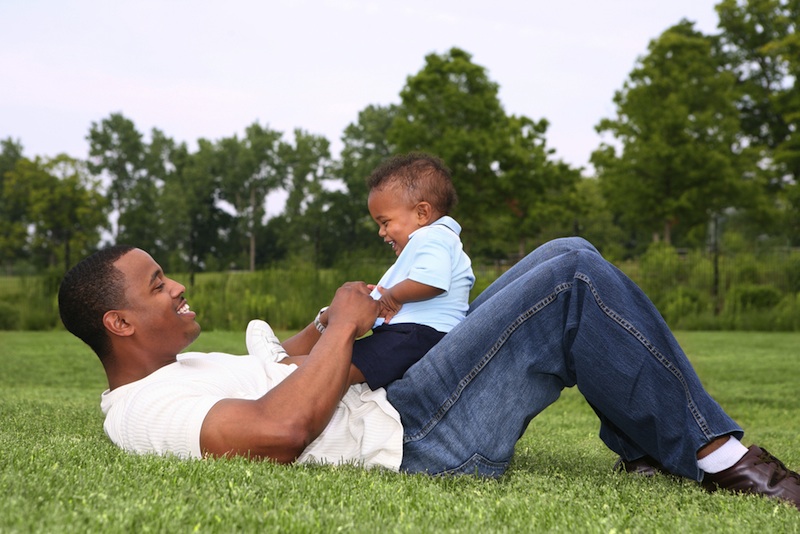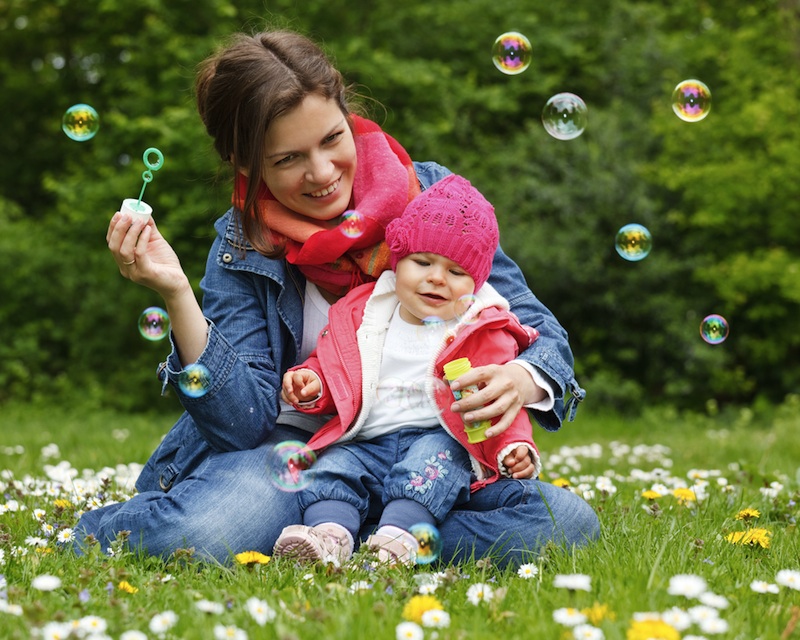25 Scientific Tips For Raising Happy (& Healthy) Kids
Strictness has weighty consequences

Playing the part of the strict or controlling parent can have long-term negative consequences on your children's physical health, according to research published in 2014. Specifically, kids of strict parents are more likely to be obese.
The researchers found that kids ages 2 to 5 who had parents who set strict limits on activities, didn't communicate much with their children and didn't show them much affection were 30 percent more likely to be obese than their peers whose parents were affectionate and openly communicated with their children.
Dads: Get involved

Forget the stereotype of the bumbling dad who doesn't know how to change a diaper. Research consistently shows that dads are just as good at this whole parenting thing as moms. Furthermore, dads bring a lot of valuable parenting skills to the table.
Fathers strongly influence their kids' lives in several ways, according to W. Brad Wilcox, a sociologist at the University of Virginia who studies marriage and families. Firstly, dads tend to play rougher with kids than moms do, which helps kids learn to control their bodies and emotions. Dad's hands-on style of play also encourages healthy risk-taking, which can influence a child's ambitions in the long-term, Wilcox told Live Science in 2013. A strong paternal relationship also brings with it a certain level of protection, as research has found that children with involved fathers are less likely to become the victims of sexual abuse or assault, he said.
Be authoritative

Want to keep your teen from experimenting with drugs and alcohol? The most effective way to do that is to be authoritative, according to researchers. A study published in the journal Archives of Pediatrics and Adolescent Medicine in 2012 found that teens whose parents were authoritative (the study defined this as being in control, but with a warm attitude) were significantly less likely to drink, smoke cigarettes or use pot than teens whose parents were neglectful (i.e. not in control and lacking warmth).
Don't overexplain

It's important to communicate with your kids, but children don't need a full-blown explanation for every decision you make, said Klein, who encourages parents to discuss important decisions with kids and let the little choices, like what's for dinner, go unexplained.
Encourage friendships

Preteen and teenage friendships might sometimes seem a little baffling to parents (why would anyone want to walk around the mall for hours on end?), but these relationships are very important for the development of a child's social skills.
"They are practicing adult social skills in a safe setting, and they are really not good at it at first," said Sheryl Feinstein. Friends help adolescents learn skills like negotiating, compromising and group planning.
LOL! Joking Helps

Lighten up! Joking with your toddler helps set them up for social success, according to research presented at the Economic and Social Research Councils’ Festival of Social Science 2011. When parents joke and pretend, it gives young kids the tools to think creatively, make friends and manage stress. So feel free to play court jester — your kids will thank you later. [Top 5 Benefits of Play]
Be Positive

No surprise here: Parents who express negative emotions toward their infants or handle them roughly are likely to find themselves with aggressive kindergartners. That’s bad news, because behavioral aggression at age 5 is linked to aggression later in life, even toward future romantic partners. So if you find yourself in a cycle of angry parent, angry baby, angrier parent, try to break free. It will ease your problems in the long run.
Foster Self-Compassion

Parental guilt is its own industry, but avoid the undertow! Research suggests that self-compassion is a very important life skill, helping people stay resilient in the face of challenges. Self-compassion is made up of mindfulness, the ability to manage thoughts and emotions without being carried away or repressing them, common humanity, or empathy with the suffering of others, and self-kindness, a recognition of your own suffering and a commitment to solving the problem. Parents can use self-compassion when coping with difficulties in child-rearing. In doing so, they can set an example for their kids. [5 Ways to Foster Self-Compassion In Your Child]
Let Go

When the kids fly the nest, research suggests it’s best to let them go. College freshmen with hovering, interfering "helicopter" parents are more likely to be anxious, self-conscious and less open to new experiences than their counterparts with more relaxed moms and dads. That doesn’t mean you should kick your offspring to the curb at 18, but if you find yourself calling your child’s professors to argue about his grades, it may be time to step back.
Nurture Your Marriage

If you’re a parent with a significant other, don’t let your relationship with your spouse or partner fall by the wayside when baby is born. Parents who suffer from marital instability, such as contemplating divorce, may set their infants up for sleep troubles in toddlerhood, according to research published in May 2011 in the journal Child Development. The study found that a troubled marriage when a baby is 9 months old contributes to trouble sleeping when the child is 18 months of age. It may be that troubled houses are stressful houses, and that stress is the cause of the sleep problems. [6 Scientific Tips for a Successful Marriage]
Sign up for the Live Science daily newsletter now
Get the world’s most fascinating discoveries delivered straight to your inbox.

Stephanie Pappas is a contributing writer for Live Science, covering topics ranging from geoscience to archaeology to the human brain and behavior. She was previously a senior writer for Live Science but is now a freelancer based in Denver, Colorado, and regularly contributes to Scientific American and The Monitor, the monthly magazine of the American Psychological Association. Stephanie received a bachelor's degree in psychology from the University of South Carolina and a graduate certificate in science communication from the University of California, Santa Cruz.










